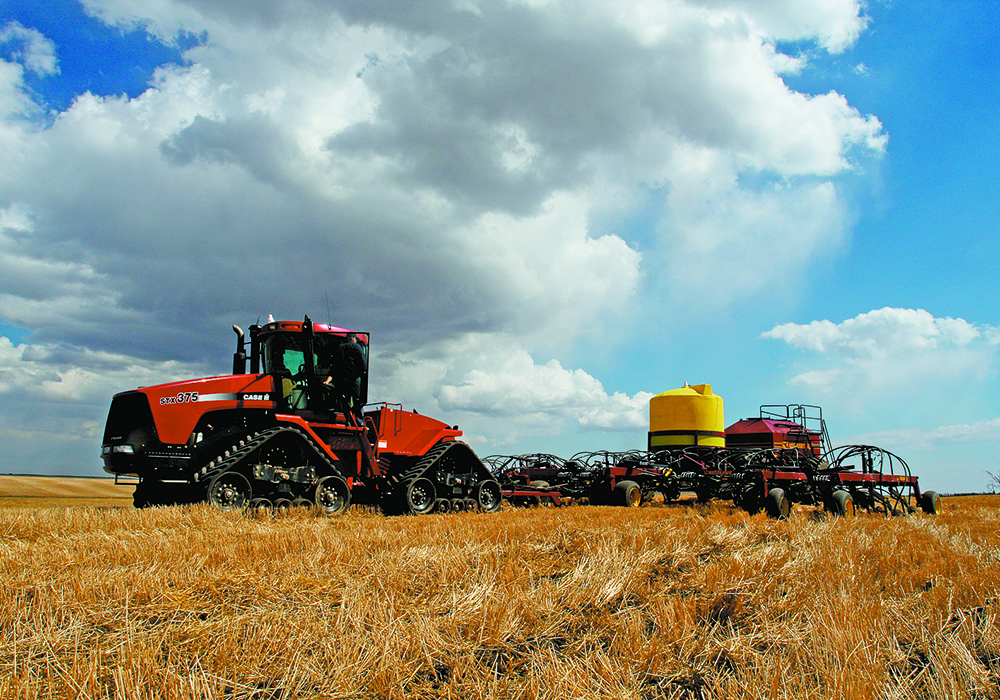Farmers working to establish a Saskatchewan soil carbon sequestration policy say they should receive any payments for carbon storage because they’re the ones making it possible.
Jocelyn Velestuk, president of the Saskatchewan Soil Conservation Association, said farmers have adopted practices that ensure carbon is still being sequestered.
Sampling from the SSCA’s Prairie Soil Carbon Balance project, which began in 1996 when practice shifted to no-till and continuous cropping, has shown that sequestration continues even under those conditions, she said.
The same soils were sampled again in 2005, 2011 and 2018.
Read Also

Farming Smarter receives financial boost from Alberta government for potato research
Farming Smarter near Lethbridge got a boost to its research equipment, thanks to the Alberta government’s increase in funding for research associations.
“From that we determined that, yes, farmers are continuously putting carbon in the soil,” she said. “Originally they thought it would level out after 30 years but we’re showing we’re still putting carbon in the soil even after 30 years. That was a really important piece of information because that kind of determines how we move forward from here.”
The SSCA has three seats at the provincial working group table, along with one from the Agricultural Producers Association of Saskatchewan, one from the Sask-atchewan Association of Rural Municipalities, two from the agriculture ministry and four from the environment ministry.
The intent is to develop a made-in-Saskatchewan offset protocol based on science. The protocol would then be forwarded to the federal environment department for inclusion in the federal greenhouse gas offset system.
The group’s work is in two phases. The first is a literature review of different protocols and the second is developing a draft protocol.
“We’re kind of midway through the process of looking at the research and a way to get a protocol together,” she said. “Once we figure that out we’ll move to the next step.”
Viresco Solutions is working with the group and presented its first literature review in late July.
Velestuk said the SSCA’s position is that the government should separate biological carbon sinks, such as from agriculture and forestry, from industrial and point source regulations in the Saskatchewan climate change framework.
This would mean “the Saskatchewan protocol will not include non-scientific factors such as additionality, business-as-usual, and project start dates in the proposal,” she said in an online post to update farmers.
Additionality refers to greenhouse gas emission reduction that wouldn’t have happened without an offset buyer.
The protocol would include the new and incremental sequestration each and every year.
“I don’t think they’re going to give any credit going backwards so we’re saying we know we’re putting carbon in the soil every year,” she said. “We as farmers want credit for that in the offset market.”
Velestuk said the SSCA is making sure farmers’ voices are heard in the process and prefers a regulatory market. Voluntary markets haven’t returned value to farmers, she said.
“It will benefit all of Saskatchewan if the money goes to the farmgate,” she said. “That’s what we’re really speaking up for.”
Velestuk said Saskatchewan farmers might forget that no-till isn’t done everywhere even though it’s common for them.
“Maybe our version of conventional is really quite sustainable,” she said. “We’re all regenerating our soils. That’s a really important thing that I think is downplayed about Saskatchewan farmers.”
She said using SSCA data is a starting point but the group hopes to be able to include different data, including that of sequestration on grasslands and pastures. That would involve a second version of the Prairie Carbon Soil Balance project to measure those types of soils.


















